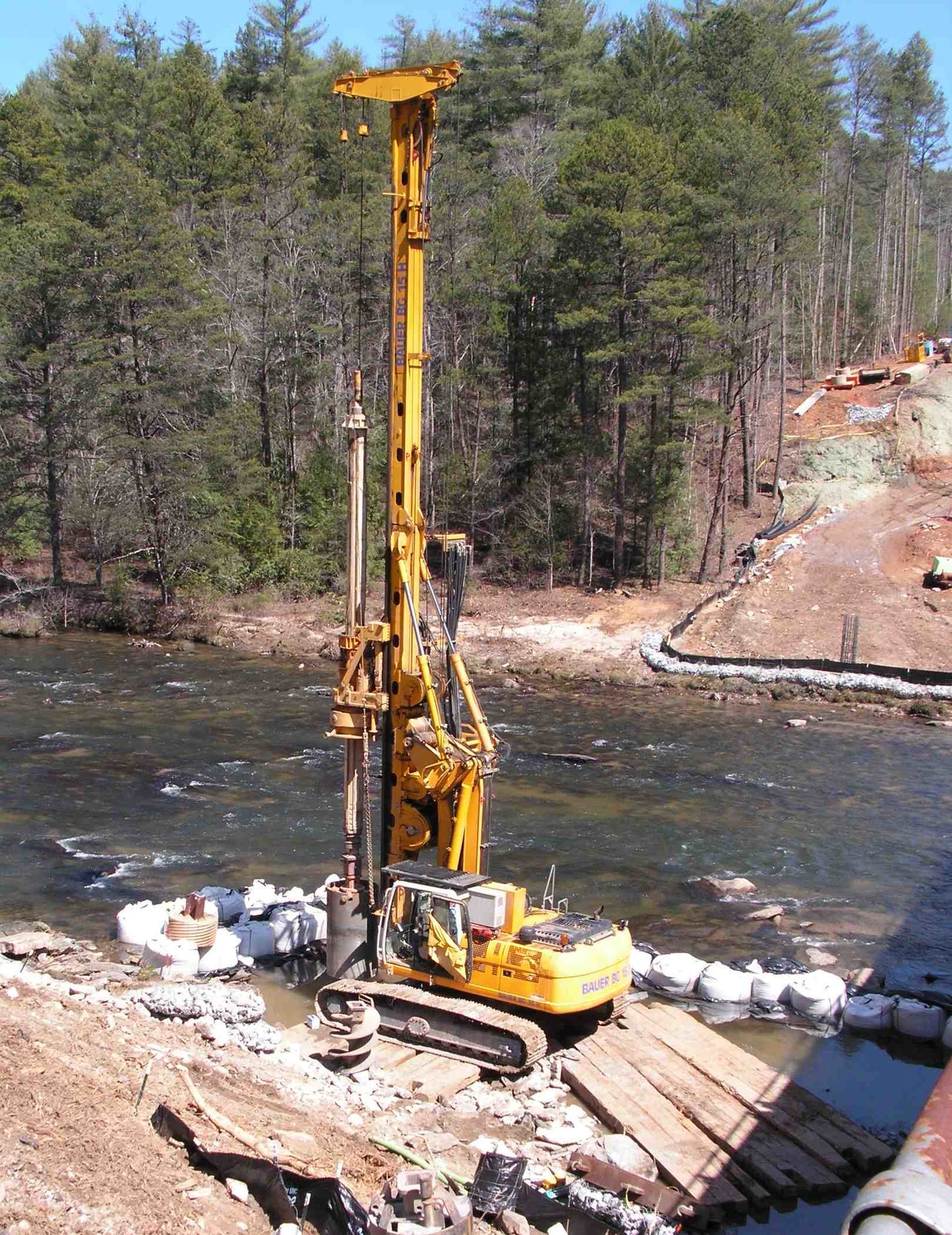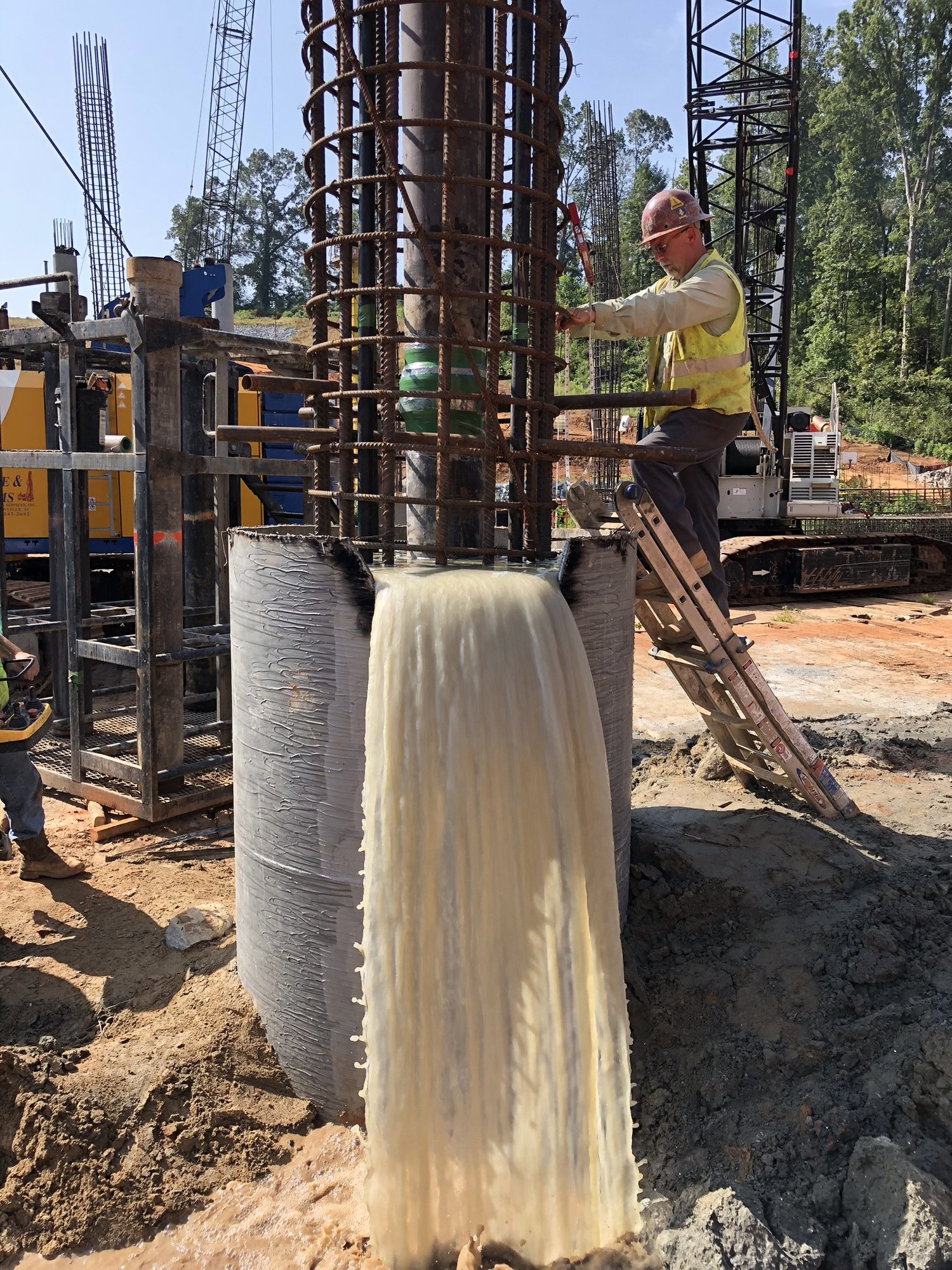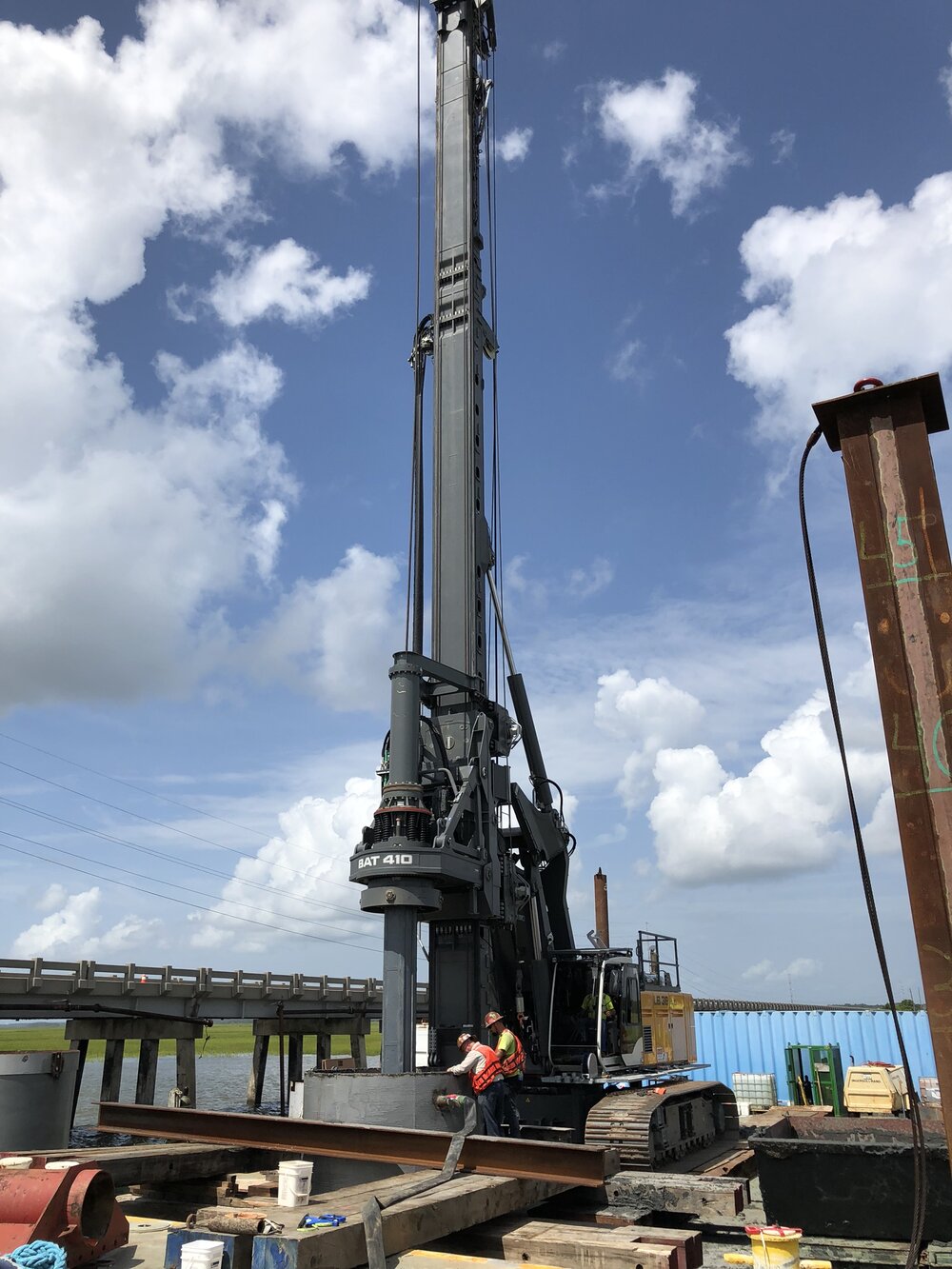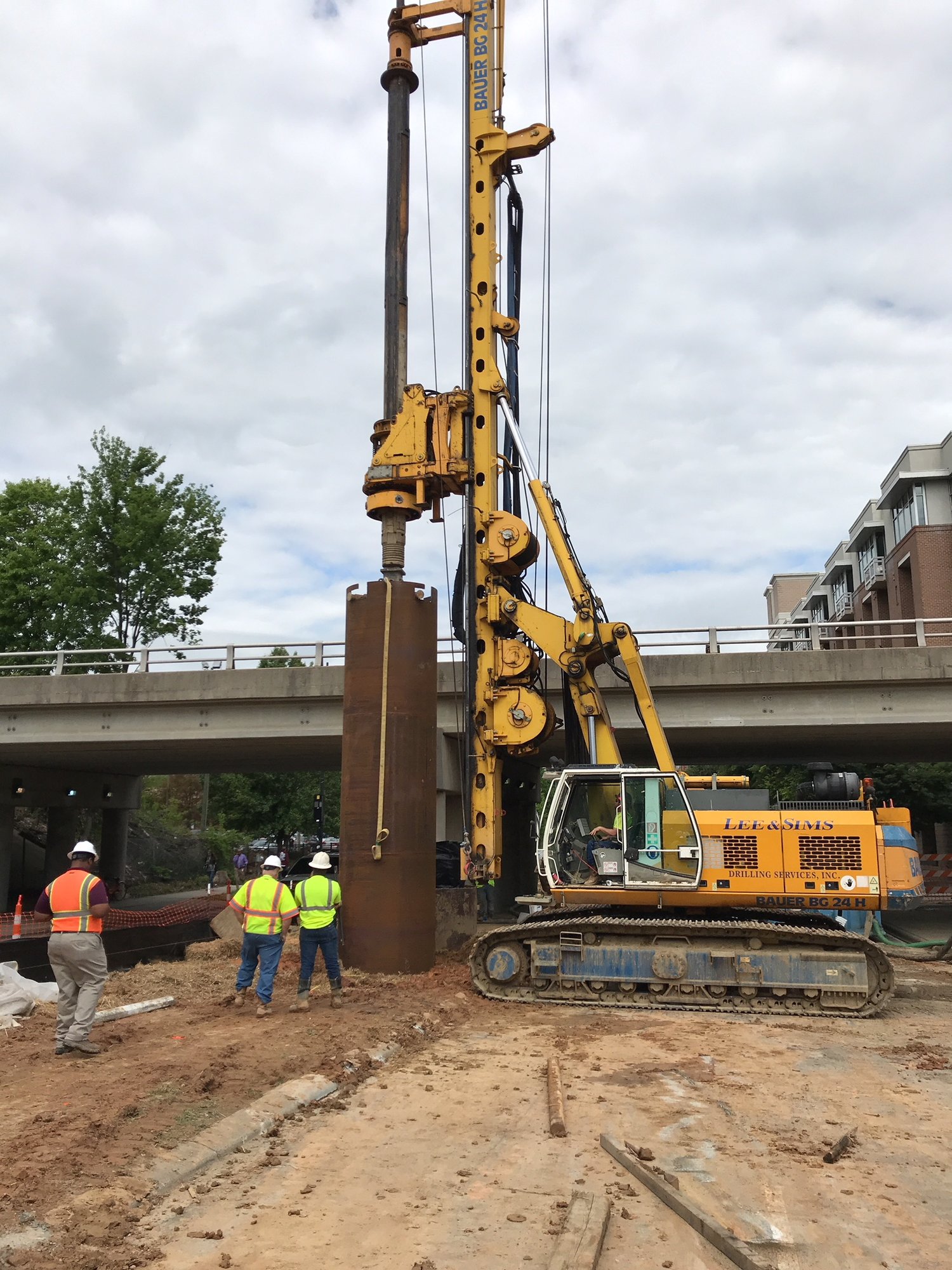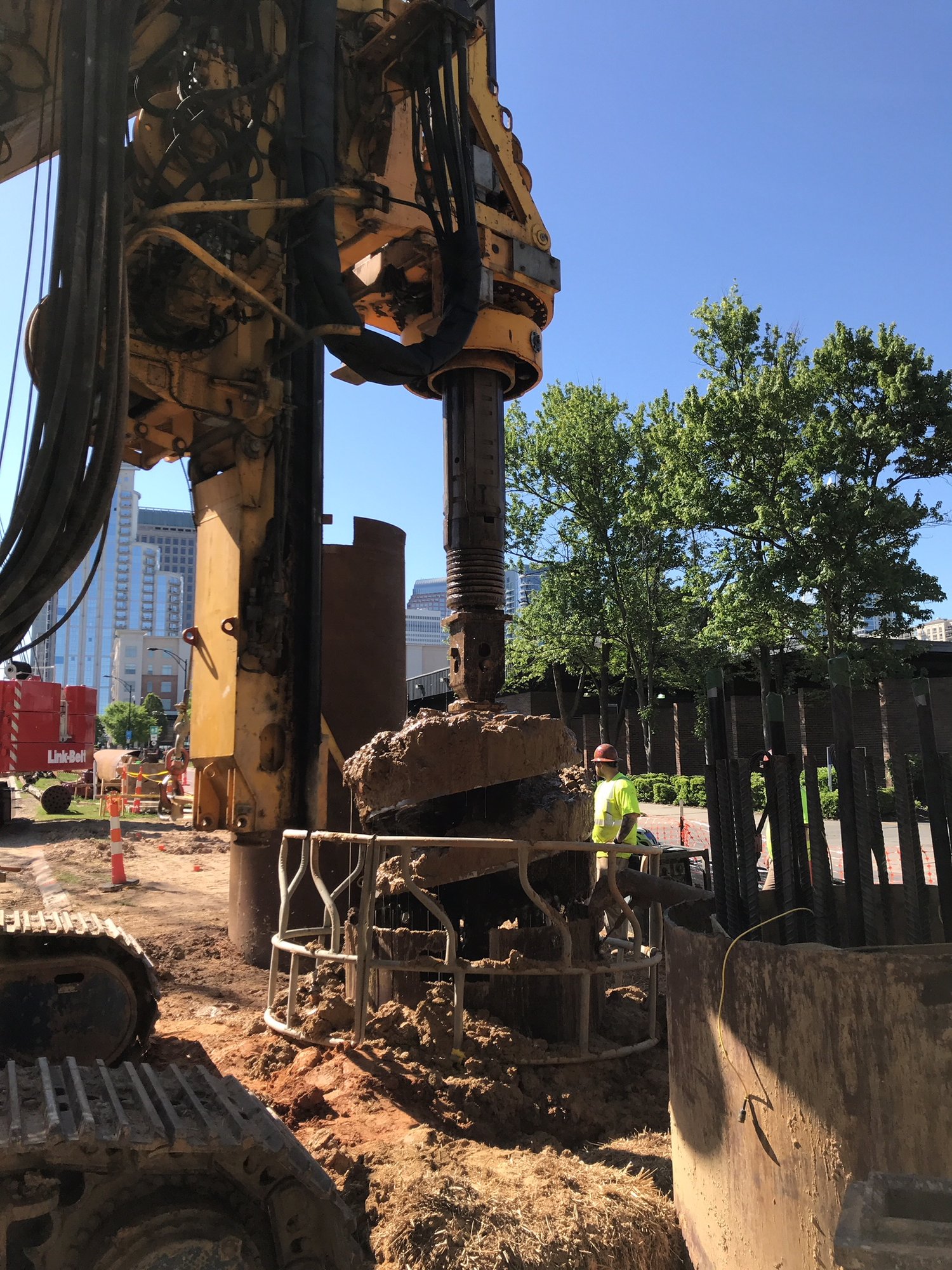| Foundation Drilling Service | Foundation Drilling Service |
|---|---|
| Lee & Sims Drilling Services, Inc. | Reliable Constructors, Inc. |
| More information | More information |
 |
 |

Pile Buck's Top Recommended Service Providers
| Foundation Drilling Service | Foundation Drilling Service | Foundation Drilling Service |
|---|---|---|
| Lee & Sims Drilling Services, Inc. | Reliable Constructors, Inc. | Company 3 |
| More information | More information | More information |
 |
 |
This guide provides a detailed exploration of the various drilling methods used in foundation construction, the equipment involved, and key project management strategies. We will also discuss the planning and preparation steps, safety standards, and best practices to ensure efficient and safe drilling operations—making this an indispensable resource for anyone involved in foundation drilling projects.
Understanding Foundation Drilling
Foundation drilling is a critical process in construction, used primarily to prepare the site for various types of deep foundations—including piers, piles, and caissons. This process involves using large drilling rigs to bore holes into the earth—which are then filled with concrete and other materials to form the stable base needed for large structures like buildings, bridges, and other heavy infrastructure.
Types of Drilling Methods Used in Foundation Construction
The most common types of drilling methods used in foundation construction include…
Rotary drilling utilizes a rotary drill bit to mechanically bore through earth or rock. This method is ideal for creating deeper and larger diameter boreholes. It is commonly employed in urban construction and large-scale projects. The effectiveness of rotary drilling in various ground conditions makes it a preferred choice for projects that require significant depth and precision.
Auger drilling employs a helical screw blade to drill into soft soil and extract the spoil. This technique is best suited for softer ground conditions and is particularly valuable in environments where minimal disturbance is crucial. Auger drilling is commonly used in residential and light commercial projects, providing an efficient solution for drilling without extensive disruption to the surrounding area.
Down-the-hole hammer (DTH) drilling involves a pneumatic hammer drill bit placed at the bottom of the drill string, with the hammer piston directly striking the drill bit. This method is highly effective in hard rock formations and is often necessary where high penetration rates are essential. DTH drilling is typically used in challenging environments, such as mining and quarrying, where its ability to efficiently penetrate hard materials is crucial.
Casing drilling is performed by drilling and simultaneously casing the hole to prevent the walls from collapsing. This method is essential in unstable ground conditions, such as sandy or water-saturated soils. Casing drilling ensures the stability and integrity of the borehole throughout the drilling process, making it indispensable for maintaining safety and efficiency in environments prone to ground shifts and collapses.
Equipment Commonly Used in Foundation Drilling
The most common types of equipment used in foundation drilling applications include…
Drill rigs come in a variety of sizes and capabilities—ranging from small, mobile rigs designed for tight spaces—to large, truck-mounted rigs suited for major construction projects. These rigs are specifically designed to handle various drilling methods and are equipped with advanced features for depth control and efficient spoil removal.
Drill bits and augers vary significantly—including rotary bits, auger flights, and DTH hammers—each tailored to the specific geology of the site. The selection of these components is crucial and is based on factors such as the soil type, depth, and diameter of the borehole. This careful selection ensures that the drilling equipment can effectively handle the geological conditions of the site, optimizing performance and minimizing wear-and-tear on the equipment.
Casing systems play a vital role in stabilizing the borehole during drilling operations. These systems can be temporary, removed after concrete is poured, or permanent—left in place to maintain borehole integrity. The choice between temporary and permanent casings depends on the specific requirements of the project and the stability of the surrounding environment. This ensures the long-term success of the construction effort by preventing borehole collapse during critical phases of the drilling process.
Mud pumps and handling systems are essential for circulating drilling mud, which serves multiple purposes—it stabilizes the borehole, cools the drill bit, and lifts drill cuttings from the borehole. These systems typically include high-powered pumps designed to handle deep and large-diameter holes, ensuring efficient circulation of drilling mud. This is critical for maintaining the structural integrity of the borehole and for facilitating efficient drilling operations across a variety of project scales and depths.

Planning and Preparation
Effective planning is crucial for the success of any foundation drilling project, encompassing everything from initial project scoping to legal compliance.
Steps Involved in Planning a Foundation Drilling Project
Planning for foundation drilling begins with a detailed project scope that outlines the objectives, timelines, and resource allocations. This initial step involves collaboration between engineers, project managers, and drilling experts to ensure that all aspects of the project are thoroughly understood and planned. Key activities include determining the drilling methods suitable for the geology of the site, estimating costs, and scheduling the phases of drilling operations.
Site Assessment and Soil Analysis
Before any drilling can commence, a comprehensive site assessment is performed to gather crucial information about the ground conditions. This assessment includes soil sampling and analysis—which helps in identifying the types of soil and rock formations present, their density, moisture content, and other physical properties. Geotechnical engineers analyze these samples to determine the suitability of the site for the intended construction and to decide on the appropriate drilling techniques and equipment. This step is vital for mitigating risks associated with unstable ground conditions and for ensuring the structural integrity of the foundation.
Legal and Environmental Considerations
Foundation drilling must comply with various legal and environmental regulations to ensure that the project does not negatively impact the surrounding environment and adheres to all legal standards. This includes obtaining necessary permits, conducting environmental impact assessments, and implementing measures to protect local wildlife and ecosystems. In addition, adherence to zoning laws and building codes is essential to avoid legal complications and to ensure safety throughout the construction process.
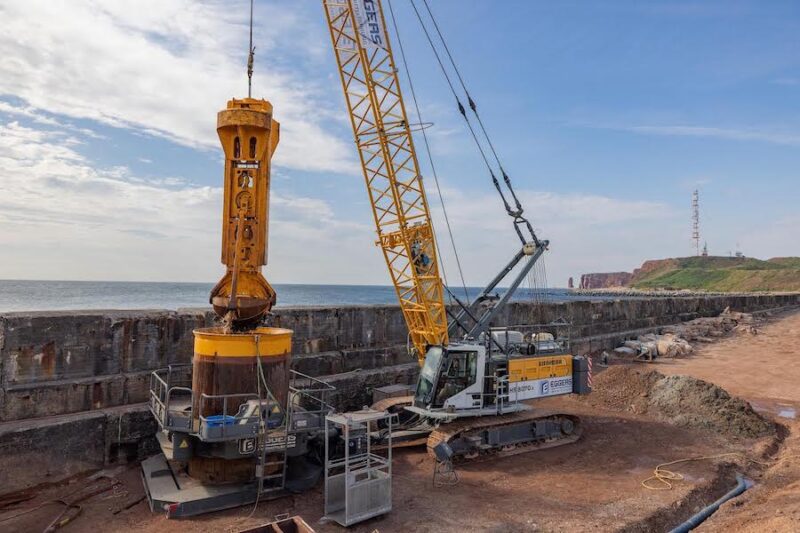
Project Management Tips
Mastering project management in foundation drilling is crucial to overcoming common challenges and ensuring project success—requiring meticulous planning, robust coordination, and vigilant oversight.
Effective Project Management Strategies Specific to Foundation Drilling
Effective project management in foundation drilling involves detailed planning, coordination, and oversight to ensure that projects are completed on time, within budget, and according to specified quality standards. Key strategies include…
Detailed resource planning. Allocate the necessary equipment, materials, and personnel based on the specific requirements of each project phase. This includes scheduling equipment maintenance to avoid downtime and planning for logistics to ensure timely delivery of materials.
Conduct thorough risk assessments to identify potential issues that could impact the project, such as unexpected geological conditions or equipment failures. Implementing mitigation strategies, such as having contingency plans and adaptive drilling techniques ready, is crucial.
Maintain clear and continuous communication among all stakeholders—including project managers, drill operators, engineers, and clients. Regular updates, meetings, and use of project management tools can help synchronize efforts and promptly address any emerging issues.
Regularly monitor compliance with safety and environmental regulations. Quality control checks should be conducted at various stages of the drilling process to ensure that the foundation meets all engineering specifications and industry standards.
Common Challenges and Solutions in Coordinating Drilling Projects
Several challenges can arise during foundation drilling projects, requiring effective solutions to ensure project success…
Encountering unexpected geological conditions like rock formations or groundwater levels can delay projects. Solution: Utilize adaptive drilling techniques and flexible project planning to accommodate changes without significant delays.
Breakdowns can cause costly downtime. Solution: Implement a robust maintenance schedule for all equipment and keep critical spare parts on hand to minimize disruption.
Compliance with stringent regulations can be challenging. Solution: Engage environmental consultants during the planning phase to ensure all environmental assessments and permit requirements are met ahead of project initiation.
Differences in project vision or expectations can lead to conflicts. Solution: Ensure all contracts and project deliverables are clearly defined and agreed upon by all parties before commencement, and maintain open lines of communication throughout the project.
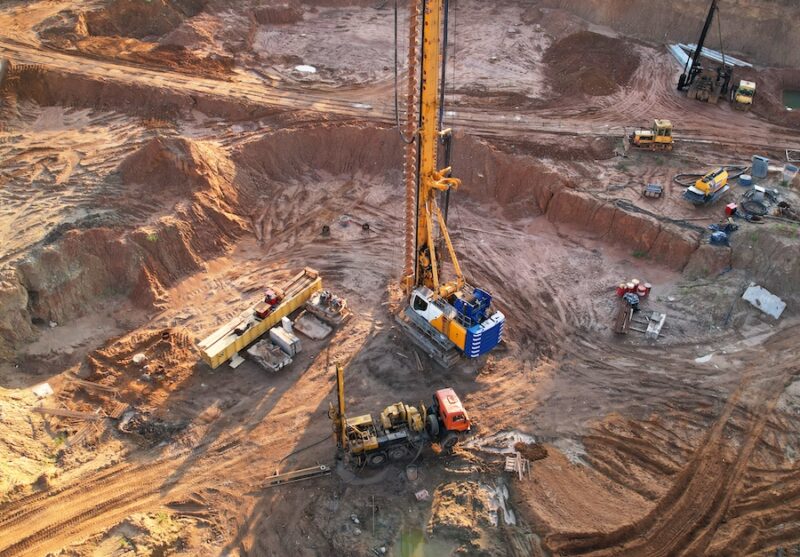
Safety Standards and Practices
Adhering to stringent safety regulations is paramount in foundation drilling to safeguard both workers and the environment.
Overview of Safety Regulations Governing Foundation Drilling
Foundation drilling involves strict adherence to a variety of safety regulations to protect workers and the environment. These regulations are often set by national and local government agencies and can include standards for equipment use, site operations, and emergency procedures. Key regulations may involve the Occupational Safety and Health Administration (OSHA) in the United States—which sets guidelines for protective gear, equipment maintenance, and safe operational practices.
Best Practices for Ensuring Safety on the Drilling Site
Ensuring safety on a foundation drilling site requires a comprehensive approach that includes the following best practices…
Conduct ongoing safety training sessions for all team members. These should cover emergency response procedures, proper use of safety equipment, and updates on new safety regulations. Regular drills should also be conducted to ensure everyone knows how to act in case of an emergency.
Implement a stringent protocol for inspecting and maintaining all drilling equipment. Regular checks can prevent malfunctions and accidents caused by equipment failure. This includes checking drill rigs, safety harnesses, and other critical gear before each use.
Ensure that all personnel on the site wear appropriate PPE at all times. This includes helmets, safety goggles, ear protection, and steel-toed boots. Specialized equipment may also be required in certain conditions, such as respirators when working in dusty environments.
Maintain clear signage around the drilling site to warn of potential hazards like deep holes, heavy machinery operation, and areas where hearing protection is required. Physical barriers should be used to demarcate these areas to prevent unauthorized access.
Develop and maintain an effective emergency response plan tailored to potential hazards specific to drilling sites. This plan should include procedures for handling injuries, fires, and environmental spills—with easily accessible emergency contact information and first aid resources.
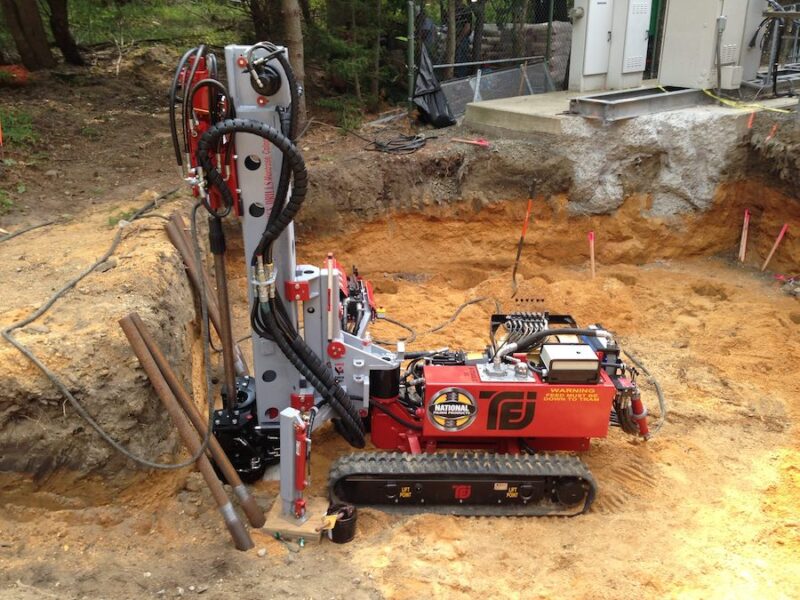
Service Providers
When selecting a drilling contractor, several key criteria should be considered to ensure project success. Experience and expertise are paramount—companies with a solid track record and relevant project experience are typically more reliable. The quality and maintenance of the contractor’s equipment also play a critical role—as modern, well-maintained equipment reduces the risk of delays and safety incidents. Prospective clients should also review the contractor’s safety records, ensuring they align with industry best practices.
In addition, it is essential to verify that the contractor holds all necessary licenses and certifications—complying with both local and international regulations. Financial stability should also be assessed to ensure the company can complete the project without financial difficulties. References and feedback from previous clients can provide insights into the contractor’s reliability and quality of work. Finally, the contractor’s willingness to accommodate the specific needs of the project and their customer service and technical support should also be considered.
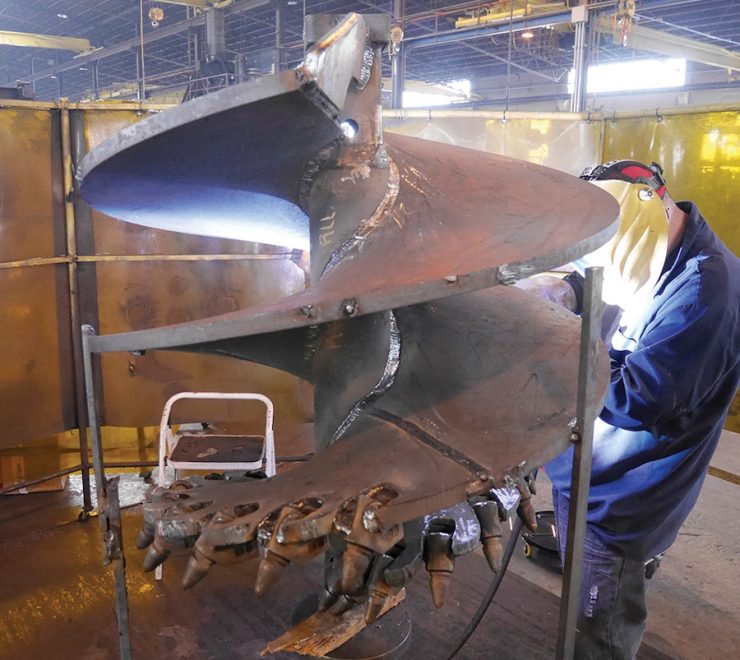
PILE BUCK’S TOP RECOMMENDED FOUNDATION DRILLING SERVICE PROVIDERS
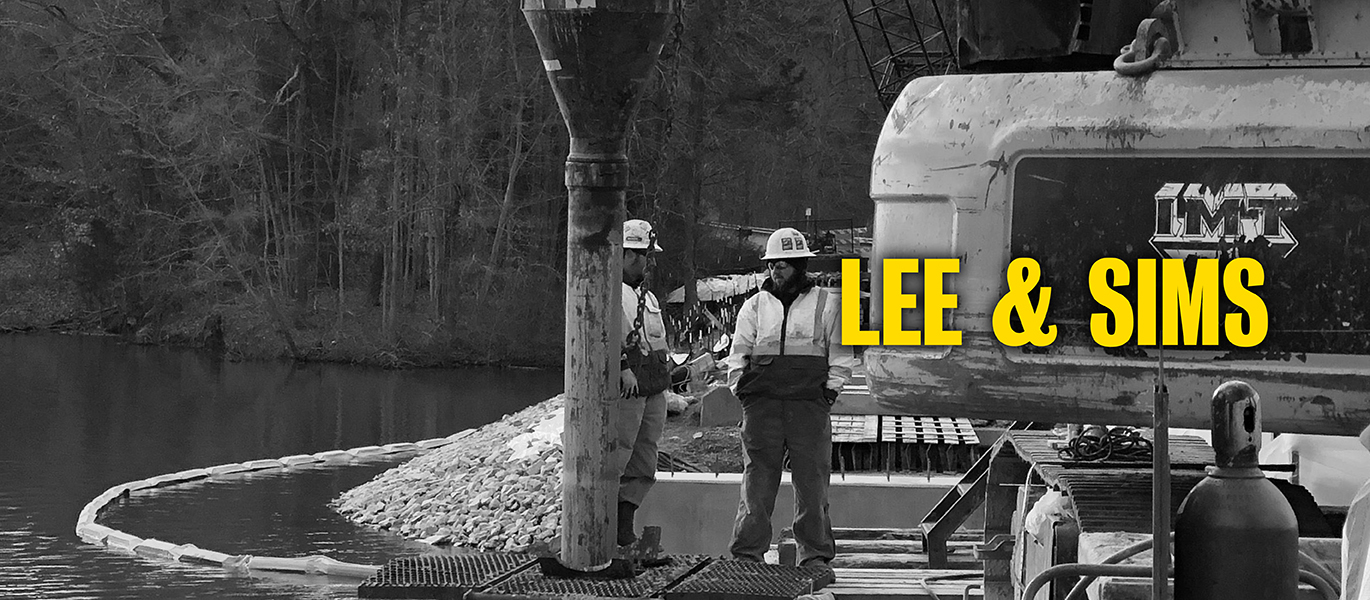
About
Lee & Sims Drilling Services is a full-service drilling company located just south of Greenville, South Carolina. We specialize in drilling for deep foundations.
Our company was established in 1985 and has steadily grown into a highly diversified and well-respected company. Our primary service area includes South Carolina, North Carolina and Georgia.
We own and operate a modern and well-maintained fleet of drill rigs and support equipment and our crews are very knowledgeable and experienced. In recent years, the majority of our work has been in the installation of bridge foundations. We have completed foundations for more than one hundred bridge construction projects in South Carolina, North Carolina, and Georgia in the past five years.
These projects have required shafts with depths over 100 feet and diameters up to 96 inches. Drilling methods ranged from slurry drilling in sandy material to air hammer drilling in very hard rock.
We believe that our experience and technical expertise make us uniquely qualified to handle the toughest drilling tasks, and we welcome the opportunity to tackle specialized “one-of-a-kind” problems as well as the routine. We are available and eager to assist you with any drilling-related questions or problems that you may have and invite you to contact us at any time.
Services
- Residential Foundation Drilling
- Commercial Projects
- Industrial Foundations
- Custom Solutions
Lee & Sims Drilling Services, Inc.
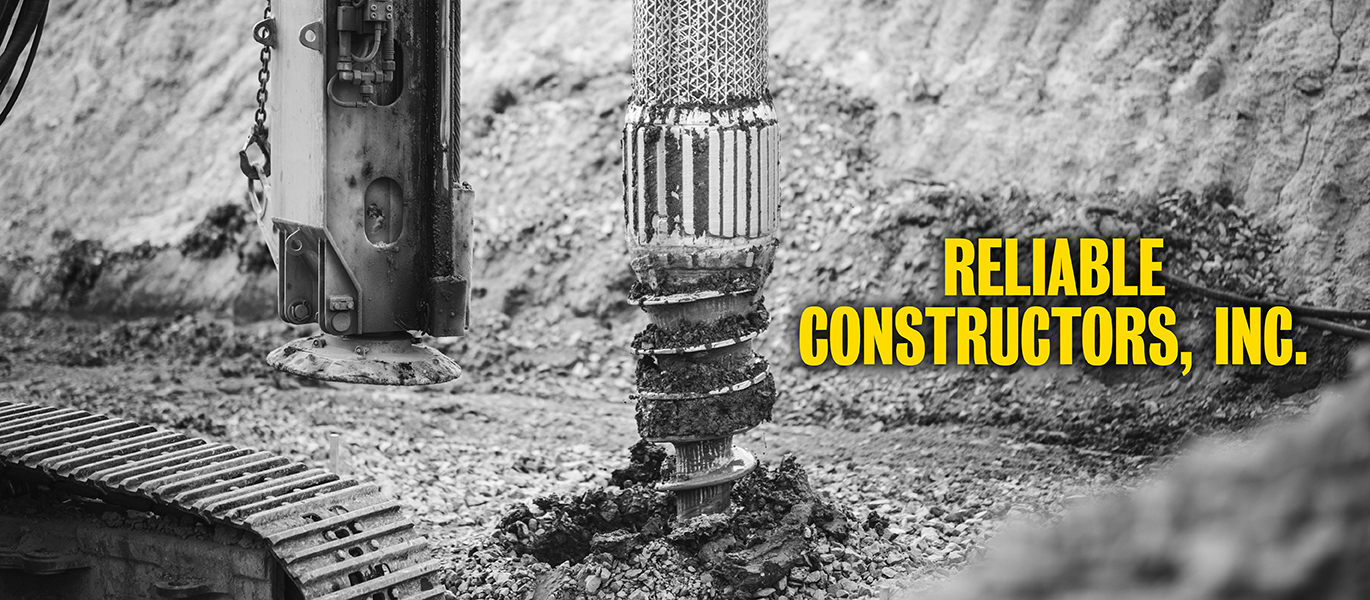
About
Reliable Constructors is a family owned and operated company providing foundation solutions to the Southeastern United States since 1986. Our reputation for doing quality work at a reasonable price has allowed us the opportunity to provide services to customers in various fields. Our operation is based in Central Florida; however, we are a Certified General Contractor in Florida, Georgia, Alabama, South Carolina, North Carolina and Tennessee.
Most of our work requires the wet hole drilling method, which utilizes drilling slurry to stabilize the hole. We are experienced drilling in areas with a high water table and where conditions vary from soft sand to hard rock. Many of our projects take place in difficult to access locations, requiring the providing of and/or placing of mats for equipment stability.
Dept. of Transportation Drilled Shaft Foundations
- Highway Sign Foundations (Trusses, Cantilevers, Gantry Toll Systems)
- Traffic Signals
- High Mast Lighting
- Cantilever Lighting
- CCTV Poles
Telecom Industry Drilled Shaft Foundations
- Broadcast and Cellular Communication Towers
- Guyed Tower Foundations
- Monopole Foundations
Other Drilled Shaft Foundation Solutions
- Power Transmission Lines
- Sporting Complex Infrastructure
- Electrical Substations
- Wick Shaft Installation
- Vibratory Hammer Casing Installation
- Billboard Sign Foundations
- Airport Passenger Bridges
- Solar Power Generator Stations

